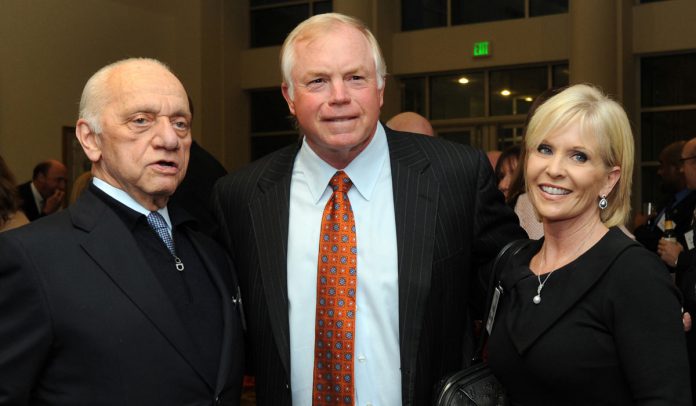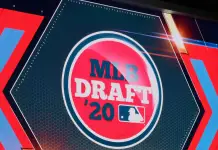In a lengthy August 9 post in the “Astros GM is going to have a long 2 months” thread, I tried to explain the burden that federal and state taxes will impose on Peter Angelos’s estate, and I opined that estate taxes will deplete the estate’s assets to the point where MLB owners probably would not approve a transfer of control of the Orioles to his son or sons. My analysis of estate taxes came out of my musings about a question that’s been bothering me: Why is Peter Angelos doing the things he’s doing to the Orioles?
I’ve been critical of Angelos almost since he took over the Orioles. I believe his character flaws – including egomania, delusions of baseball expertise, unwillingness to take responsibility for (or even acknowledge) his decisions, political grandstanding, slow decision-making, and strong preference if not insistence on team executives’ sycophancy – have hurt the team badly. Nonetheless, I have to believe Angelos is a reasonably intelligent guy who, despite his advanced age, continues to be rational.
How, then, to explain the Orioles’ spurning of international signings, relative disinterest in the farm system, the Davis, O’Day and Trumbo contracts, trades of prospects for rental veterans, and the decision last month not to sell any valuable assets, including “going dark” at the eleventh hour? I can’t understand how someone of even modest intelligence who is trying to build a winning ballclub would make these decisions. Peter Angelos can’t be that dumb (though I recall New York columnists asking about George Steinbrenner, “If you’re so rich, why aren’t you smart?”). It’s my nature, when something I’m observing closely seems inexplicable, to try to find a rationale for it that makes sense. The only way in which I can make sense of Peter Angelos’ decisions is to conclude that he plans to sell, or have his estate sell, the team within a few years.
I’m certain of a few facts. One is that, more than anything, Angelos wants to see his team win, or least reach, the World Series. I’d like to see that, too. But I know, and Angelos has to know, that for an 88-year-old the chances of seeing that happen are pretty slim.
Some more facts. This team is likely to be in rough shape a few years down the road, both financially and on the field. Forgoing the Latin American talent pool has moved from dubious to untenable; someone has to spend the millions needed to build an international infrastructure and sign young Latin players, and that process will take a while. The Nats, especially if they do well in their surprisingly weak division, will continue to erode the fan base. The financial benefit to the Orioles of the MASN deal will diminish, maybe very quickly, through potentially rigged arbitrations. The Yankees and Red Sox are stocked with good young players, whom they can afford to retain if they want to, as well as strong farm systems. Machado, Schoop, Britton and Jones may not be Orioles much longer. I don’t think they’ll be traded, but if they are the return will be much less than it could have been. The revenue gap between the Orioles and their division rivals continues to grow. (Here’s a statistic that I find chilling: according to the Forbes numbers, in 2016 the NYYs took in about $81 per ticket sold, the Sox about $63, and the Orioles about $27. The Nats were at about $40.) Toronto is a potentially revenue-rich franchise that someone will straighten out sooner or later. As a result of high ML payrolls in the last few years, relative to their revenues, the Orioles have had little operating income (or have lost money), according to Forbes.
It’s clear to me that, for the team to have a fair shot at success after the next two or three years, the owner will have to make substantial investments that might not be recovered until the team is sold again (if then), and even then there is likely to be a rebuilding process with at least a few years of losing. I think Angelos understands, if incompletely and with resistance, these challenges and problems, and that he knows that his win-soon strategy is exacerbating some of them.
From what I can tell, Peter Angelos has taken very good care of his sons, and I assume he has great affection for them. At the same time, I have seen nothing to indicate that he has (or should have) confidence in the ability of either of them – in particular, the street smarts and tenacity he believes he possesses in such abundance – to meet the challenges of running this franchise successfully, including the gumption to stand up to the Commissioner and the other owners.
It’s hard for me to see how Angelos would be running the team the way he is if he intends for his son(s) to carry on the family’s ownership after his death. This is where the estate tax analysis came in. Angelos almost certainly has some understanding that it’s at least very possible — I would say it’s certain — that, if he leaves to his son(s) his roughly 80% interest in the Orioles upon his death, (a) much of the value of his non-Orioles assets will be drained away in estate taxes, (b) his son(s) will lack the wealth that will be needed to make the team competitive in the long run, (c) his son(s) will face the embarrassing prospect of potentially having their ownership turned down by MLB because he has left them with insufficient financial resources and because of what he’s done to offend the Commissioner and the other owners, and (d) if his son(s) will through no fault of their own re-establish the connection between the Angelos name and losing baseball. My guess is that Angelos is reluctant to pass on to his sons a losing team and a franchise that will be in disrepair and in need of large cash investment base on hos own short-term focus.
Finally, I think Angelos is haunted by his richly deserved legacy as the owner of a perennially losing team, but is pleased to see the stain of 14 losing seasons fade by virtue of five straight .500-or-better teams and some post-season baseball, and will pull out all the stops to expand on that in 2017 and 2018, if not beyond. (It’s been a while since I’ve seen the team referred to as a laughingstock.) My guess is that if he can’t have a November victory parade, he wants the Angelos regime to be remembered for success, in its final years, in turning the team around and bringing excitement and postseason baseball back to baseball in Baltimore. (Of course, if lightning does find the Orioles’ bottle, so much the better.) Continuing his own ownership if he is still living, or passing ownership of the team on to his sons, is almost certain to tarnish whatever gloss the past few years have created, and make the six- or seven-year run of winning baseball an island in a sea of Angelos losing seasons. On the other hand, getting out of the baseball business a few years down the road will both avoid that and enable Angelos to leave hundreds of millions to his family, as well as estate-tax-deductible hundreds of millions more to charities that can be used for good works benefiting Baltimore and perpetuating the Angelos name.
If that’s the way Angelos is looking at it, his recent decisions make sense to me. Ordinarily, someone who’s trying to sell a business tries to gussy it up and enhance its curb appeal. Angelos has done pretty much the opposite, but I can understand that. A buyer of the Orioles will be paying over $1 billion – the 2017 Forbes valuation is $1.175 billion, and the $1.2 billion Marlins deal announced the other day tracks the Forbes number – for the privilege of owning an MLB franchise that brings with it Baltimore’s baseball tradition and one of the game’s most desirable venues. A weak farm system and scouting staff, or a few million dollars owed to over-the-hill veterans, aren’t likely to put a huge dent in the sale price – half of which, at the margin, will go to pay income taxes or estate taxes anyway. Why spend money, or try to minimize future payroll commitments, to benefit a team that will belong to someone else?
The way the team is configured, along with the Duquette and Showalter contracts, suggests to me that Angelos was targeting a sale of the team after next season. That could be wrong; maybe that’s just how the timing of those things shook out. And there’s no reason that time couldn’t be extended if Angelos lives a bit longer and the Orioles’ on-field performance holds up. In any event, there’s been a glitch: it will be very hard to get much for the Orioles’ stake in MASN while the rights fees issue is unresolved. That should be cleared up by 2018 or 2019, but it’s hard to know for sure.
I’ve thought this through privately in an effort to understand why the Orioles’ owner would act in ways that seem so clearly inconsistent with the long-range and even mid-range health of his franchise. You don’t need to tell me that I don’t know Peter Angeles and can’t possibly know what his plans are; I’m well aware of that. Maybe it’s been a waste of my time, and a little of yours. Maybe I’m completely wrong. Maybe this has been shaped by wishful thinking that competent ownership is not too far away. Anyway, this is what I’ve come up with, and with some reluctance I decided to write it out and share it.

























